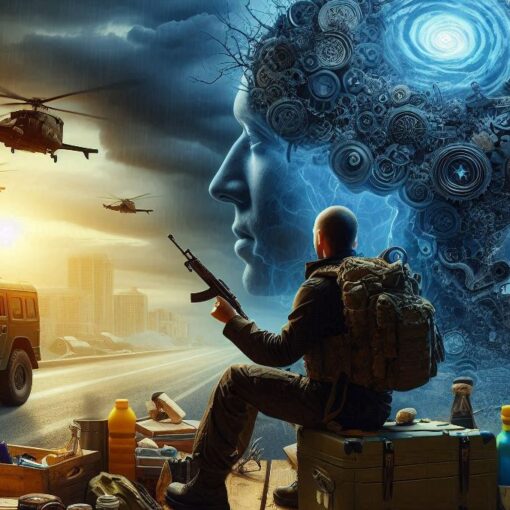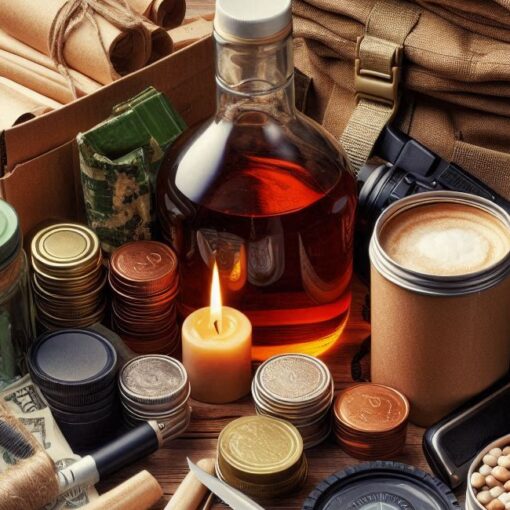Top Takeaways and Key Concepts
- Create an emergency communication plan so everyone knows how to reconnect if separated.
- Use multiple communication methods like texts, radios, and satellite tools when phone service fails.
- Keep key contacts written down in case devices die or data is lost.
- Carry backup power sources like power banks or solar chargers to keep devices working.
- Build community connections to share information, resources, and support during disasters.
Summary of This Article
This article explains how staying connected during emergencies is essential for safety and peace of mind. It encourages creating a communication plan before disaster strikes so family and friends know how to reach each other. It covers using backup tools like two-way radios, satellite phones, and personal locator beacons when cell service fails. The article also stresses writing down important contact numbers, keeping devices charged with power banks, and using apps that work offline. Finally, it promotes community networks, training, and teamwork to stay prepared and resilient when communication becomes difficult during crises.
Short Video Version of this Article
In times of crisis, staying connected can make all the difference. Imagine you’re out camping in the woods with friends when suddenly a storm rolls in.
Your phone is dead, and you have no idea how to find your way back. How would you communicate with others or call for help? This scenario highlights why having reliable emergency communication methods is essential.
Please Note: This post may contain affiliate links. If you click one of them, we may receive a commission at no extra cost to you. As an Amazon Associate, I earn from qualifying purchases.

When life throws surprises at us—like a big storm, an accident, or even just getting lost in the woods—it’s really nice to know how to reach out for help. Or check on friends and family. That feeling of being connected can make everything seem less scary.
You know those moments when you wish you had someone to talk to? Having a plan helps with that. Think about how you’d get in touch with people if things go sideways. A quick text or call can bring so much comfort.
It’s quite useful to use your phone. Even when there isn’t a signal, apps like WhatsApp and Messenger help you send messages instantly. It’s like a spell! Make sure everyone knows what apps you’re using so that no one gets confused.
Group chats are also great. You can keep up with everyone you care about in one place and check in on each other. It’s nice to hear that everyone is okay, isn’t it?
What about using social media? If something happens, it can help get the word out quickly. A quick post can reach a lot of people. Just remember to stay cheerful; people need optimism when things are hard.
Old-fashioned ways also work! When you’re out exploring, don’t forget about places to meet up or buddy systems. They’ll know where to find you if they get lost.
It’s also a good idea to keep a list of crucial contacts close by. Write down the most important numbers, like those of family, friends, and maybe even neighbors who could help in an emergency.
When things get tough, it’s easier to go through them when you feel connected. So have your coffee and think about what you want to do today. You can do this!
Understanding Different Communication Methods
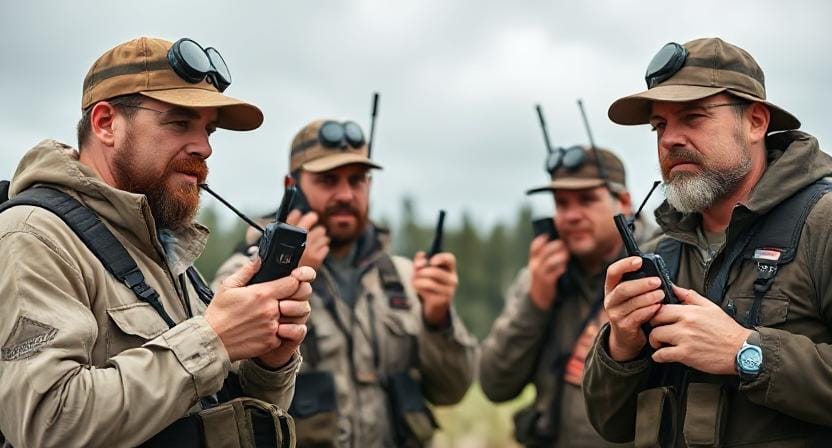
When we think about talking to people, we frequently image our phones humming with messages. But what do you do when cell towers go down or batteries die? I learned this lesson when I went hiking and found out that my phone didn’t work at all! It made me think about my choices again.
In an emergency, there are several ways to talk to each other. Two-way radios are an excellent option because they are easy to use and don’t need cellular networks.
You can chat to someone else who has a radio nearby! Did you ever use walkie-talkies when you were a youngster and played outside? They work in the same way, but they are considerably more dependable when things become bad.
Another option to think about is a satellite phone. Instead of using towers on the ground, they connect directly to satellites. They might be worth the extra money if you spend a lot of time in isolated regions, even if they can be more expensive than normal phones.
Creating a Family Communication Plan
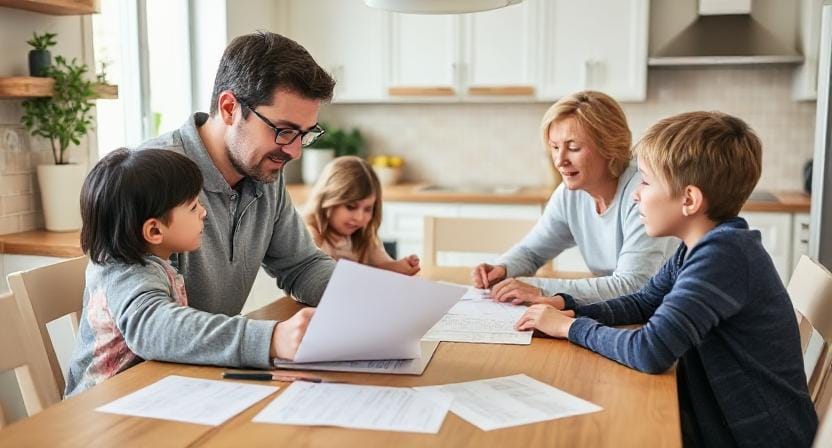
When things go tough, a family communication plan is like a customized map. It tells everyone what to do if something goes wrong. So, have you made one yet? If not, let’s get started! Right now is the best time.
Choose places where your family can meet up if you get separated. Picture an earthquake that rattles things up and everyone is outside. Knowing exactly where to go can help everyone stay calm and together. It may be the large tree in the park or the warm coffee shop down the block. Just let everyone know!
Next, think about how you will get in touch with each other in an emergency. Will you send a text? Call your neighbors? Or how about using walkie-talkies? It’s really beneficial to choose a few strategies to stay in touch. It’s like having a lot of different tools in your toolbox!
It’s also very important to practice these plans together. When it matters most, you don’t want anyone to feel lost or confused. One day, maybe while snacking, get everyone together at the kitchen table and chat about everything. People should be able to use their phones or radios when they need to without feeling bad about it.
You could even act out different situations to make it more exciting! Act like a storm is coming and practice how you would check in with each other. Laughter can help calm your nerves, right?
Having this plan makes me feel better. Knowing that your family has a strategy for whatever that comes up can make you feel more ready. So get your coffee, sit down with your family, and start making plans right away! You can do this!
Utilizing Technology Wisely
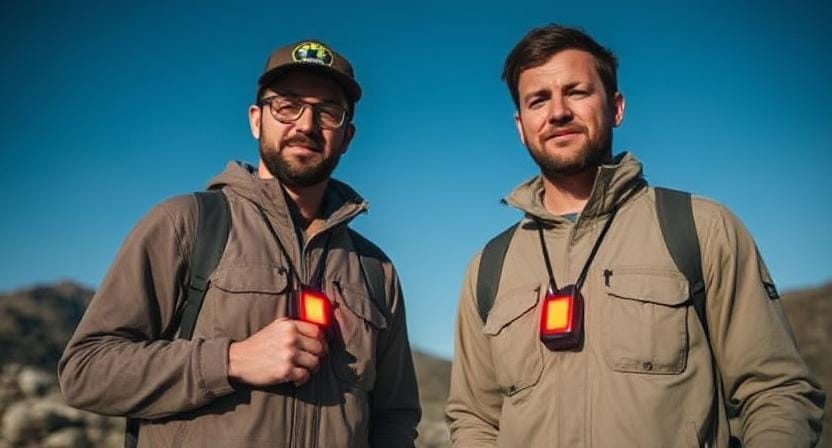
Technology may be quite useful in situations, but only if we know how to use it correctly! A lot of apps let you send messages or share your location without using cellular data.
Have you heard of apps like WhatsApp or Signal? They have encrypted texting services that keep your chats private even if the internet goes down.
It’s very cool how some gadgets can actually aid us when we need them. One of those cool little gadgets is a personal locating beacon, or PLB for short. They send out distress messages utilizing satellites, even if your phone isn’t working. What a thought! A small piece of technology in your pocket could save your life.
If something goes wrong or you’re on an adventure, having one of these could make all the difference. It’s like having a secret weapon for superheroes!
And don’t forget to keep your devices charged, too. That’s also very important! You don’t want your phone to die when you need it. It’s a good idea to buy solar chargers or power banks. Imagine you’re hiking and need to phone for aid, but your battery is dead! Oh no!
You can always have additional power ready to go with a solar charger or power bank. You know you’re ready, right?
You might want to get a coffee and consider about purchasing one of those PLBs or chargers shortly. It’s all about being safe and ready for anything life throws at us! You can do this!
Building Community Networks
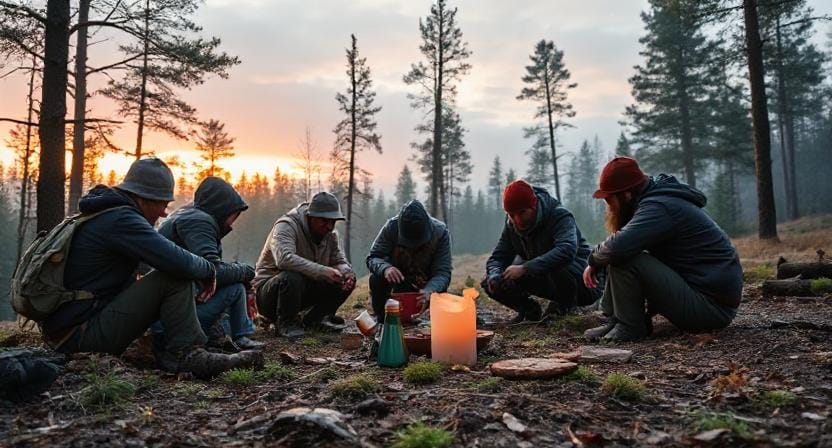
Technology isn’t the only thing that keeps us linked; community is also very important! Getting to know your neighbors can help you get through tough times.
Do you know your neighbors well enough? Think about having events where everyone can share their abilities, like how to be ready for an emergency or how to give first aid.
We make things safer for everyone by organizing local clubs that focus on being ready for emergencies.
Joining local groups that assist people get ready for disasters can be very useful. These groups frequently have wonderful training sessions and materials. It’s like a small town where everyone cares about each other. You study things together, which helps you feel more ready for anything that comes up.
It’s not just about you, though. The whole neighborhood gets stronger as we all get ready. Think about how nice it would be to know that your neighbor is there for you when things go bad. That feels amazing, doesn’t it?
We can also use social media, which is quite great. Sharing information on sites like Facebook and Twitter is a quick way to get the word out after a disaster. People need to know about services like food banks and shelters as soon as possible!
Just think about it: a single post could assist someone who is terrified or lost discover what they need. It’s an easy way to change someone’s life for the better.
So, you might want to check out those local groups and see what they have to offer. Also, don’t forget to post updates online! We can all work together to make a safety net for everyone. We can do this!
Training for Emergencies
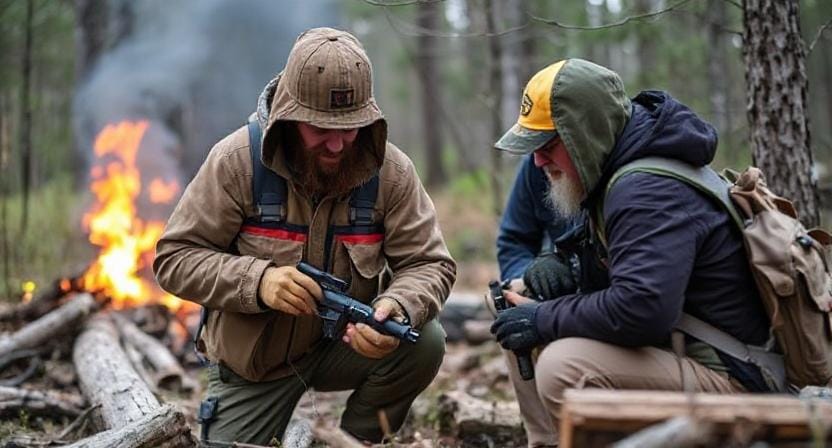
It’s crucial to know how to talk to people well, but you also need training to be ready for crises. First aid classes teach us how to save lives and how to give information in a stressful situation.
Years ago, I took a class on CPR. Wow, that really opened my eyes! In that short amount of time, I learned a lot. Not simply the tactics, but also how to keep your cool and talk effectively when things go out of hand. That’s incredibly crucial when every second counts.
I felt better about myself after practicing such abilities. You know how it is: when something horrible happens, it might be hard to think clearly. But having that training? It helps you concentrate on what’s important.
Another important thing is doing drills. They set up different situations so we can all practice as a group. It’s like playing pretend, but you learn real-life skills. Everyone can see how they fit into the whole thing. We get stronger when we work together.
Think about how easy it would be for everyone to know what to do if they had practiced. When things go wrong, that partnership can make all the difference.
If you ever get the chance to take a class or do some drills, do it! At first, it can seem like too much, but trust me, it’s worth it. You’ll leave feeling ready for whatever that comes your way!
Conclusion: The Importance of Preparedness
Getting ready for emergencies is like making a safety net. It’s all about finding new methods to talk to each other and building strong links in our communities. When we feel close to other people, things are easier.
Take a moment to think about it. It’s important to stay up to date, whether you’re trekking by yourself or dealing with a severe storm at home. We don’t want to feel like we don’t know what to do, do we? That emotion might be really frightening.
We’ve all had times when it seemed difficult to reach out. Oh no! It is the worst. But making plans ahead of time can change that. We won’t have to rush later if we make our communication strategies now.
Let’s do something today! Why not get together with some friends or family and talk about your plans? You could also jot down crucial numbers or places to meet. You don’t have to make it perfect; just make sure you can follow it when things get hard.
Something unexpected might happen to us tomorrow. Wouldn’t it be good to be ready? Accepting this philosophy as a group makes us all stronger, both as individuals and as a community. So let’s get this done! Let’s be ready for whatever that comes our way!
Frequently Asked Questions
How do I create an emergency communication plan for my family?
Start by choosing a primary contact person and backup contacts. Decide on safe meeting locations in case you are separated, such as a nearby landmark or a friend’s home. Include multiple ways to communicate—texts, calls, radios, or social apps—and write everything down so everyone knows the plan. Practice it together regularly so no one panics during a real emergency.
What if cell service goes down during a disaster?
Cell towers often fail during emergencies, so it’s important to have backup tools. Two-way radios work without cellular networks and can reach people nearby. In remote areas, satellite phones or personal locator beacons (PLBs) can send SOS signals using satellites. Even offline messaging apps can sometimes send delayed texts once a signal returns.
Why should I keep a written list of contacts?
If your phone dies, gets damaged, or data is lost, you’ll still need to reach important people. A written contact list gives you access to emergency phone numbers for family, close friends, medical services, and local authorities. Keep a copy in your wallet, emergency kit, and car for quick access.
What technology should I carry for emergency communication?
Portable power banks, solar chargers, and backup battery packs are essential to keep your devices running. Messaging apps like WhatsApp, Signal, or Zello can work even on weak signals. A PLB is a smart option for hiking or remote travel because it alerts rescue services with your location instantly.
How can I communicate if I’m lost outdoors or off-grid?
Use two-way radios to stay in touch with your group, even across long distances. If you’re truly stuck, a PLB or satellite messenger sends your location to rescue teams. Also follow simple habits like using the buddy system and pre-arranging meeting points before separating from your group.
Why is community communication important during emergencies?
Neighbors and local groups are often the first to help before official responders arrive. Community communication networks share resources, warn each other of danger, and offer shelter or supplies. Staying connected builds safety and support during widespread emergencies like storms, fires, or power outages.
How can I prepare myself to communicate better in emergencies?
Take basic safety training like CPR or first-aid classes to build confidence. Practice your family or group communication plan through simple drills. Get familiar with your emergency tools—radios, apps, power banks—before you need them. The more you prepare, the calmer and more effective you’ll be when real emergencies happen.
Suggested Resources:
Emergency Communication Plans
https://www.ready.gov/communication-plans
The Importance of Emergency Preparedness
https://www.redcross.org/get-help/how-to-prepare-for-emergencies.html
Two-Way Radios vs Cell Phones
https://www.radiocommunications.com/two-way-radios-vs-cell-phones

Kevin Collier is a seasoned outdoor enthusiast and writer for Trekbug.com, specializing in outdoor adventures, survival strategies, and prepping insights. With a deep love for nature and a commitment to self-sufficiency, Kevin empowers readers to embrace the wilderness confidently. He shares valuable tips, practical techniques, and inspiring stories, helping both novice and experienced adventurers develop essential skills for surviving and thriving in the great outdoors.




